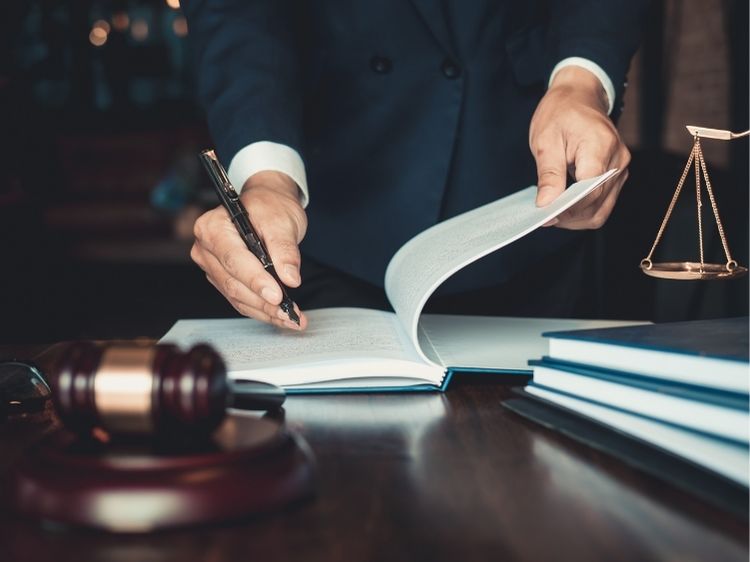Did you know that lead poisoning remains a serious health hazard in the U.S.? Despite regulations, lead exposure still affects thousands of people, particularly children, every year. If you or a loved one has suffered due to lead exposure, a lead poisoning attorney can help you navigate the complex legal landscape and fight for compensation. Let’s dive into everything you need to know, from identifying lead poisoning symptoms to hiring the right legal expert.
What Is Lead Poisoning?
Lead poisoning occurs when lead accumulates in the body, often from prolonged exposure to lead-based paint, contaminated water, or industrial materials. Once inside, lead can wreak havoc on vital systems, causing everything from developmental delays in children to organ damage in adults.
Common Sources of Lead Exposure:
- Old homes: Lead-based paints were widely used before being banned in 1978.
- Contaminated water: Lead pipes or fixtures can leach lead into drinking water.
- Occupational hazards: Workers in industries like construction or battery manufacturing may face high exposure.
- Imported goods: Some toys, jewelry, and ceramics may contain lead.
Why You Need a Lead Poisoning Attorney
A lead poisoning attorney specializes in cases involving lead exposure, advocating for victims and holding negligent parties accountable. Here’s why you should consider hiring one:
Expertise in Complex Laws
Laws regarding lead exposure vary by state and often involve intricate regulations. An experienced attorney knows how to navigate these complexities.
Proving Negligence
To win a case, you must prove that a property owner, employer, or manufacturer failed to ensure safety. Attorneys have the tools to gather evidence and build a compelling case.
Maximizing Compensation
A skilled attorney can help you secure compensation for:
- Medical expenses
- Pain and suffering
- Lost wages
- Future healthcare needs
Steps to Take After Suspecting Lead Poisoning
If you believe you’ve been exposed to lead, it’s important to act quickly. Here’s what you should do:
1. Seek Medical Attention
Early diagnosis is key. A doctor can perform blood tests to determine lead levels.
2. Document Your Case
Keep records of medical visits, property inspections, and any symptoms you or your family have experienced.
3. Contact a Lead Poisoning Attorney
Don’t wait to seek legal help. Attorneys can guide you on how to proceed and ensure your rights are protected.
How to Choose the Right Lead Poisoning Attorney
Finding the right attorney is crucial for the success of your case. Here’s a checklist to help you make an informed decision:
- Experience: Does the attorney specialize in lead poisoning or toxic exposure cases?
- Track Record: Have they successfully won similar cases?
- Communication: Do they explain complex legal terms in plain English?
- Fee Structure: Many attorneys work on a contingency basis, meaning you only pay if they win your case.
Signs and Symptoms of Lead Poisoning
Recognizing the signs of lead poisoning is crucial for seeking timely medical and legal help. Symptoms can vary based on age and exposure level:
In Children:
- Developmental delays
- Learning difficulties
- Irritability
- Loss of appetite
- Weight loss
In Adults:
- High blood pressure
- Joint and muscle pain
- Memory loss
- Abdominal pain
- Fatigue
The Legal Process: What to Expect
Filing a lawsuit for lead poisoning involves several steps. Here’s what you can expect:
1. Initial Consultation
Your attorney will review your case and determine its strength.
2. Filing the Lawsuit
The attorney will file a complaint against the negligent party, such as a landlord or manufacturer.
3. Evidence Collection
This includes medical records, expert testimony, and property inspections.
4. Negotiation or Trial
Most cases settle out of court, but some may go to trial if a fair agreement isn’t reached.
Frequently Asked Questions (FAQs)
What does a lead poisoning attorney do?
A lead poisoning attorney helps victims file lawsuits, negotiate settlements, and secure compensation for damages caused by lead exposure.
Who is liable for lead poisoning?
Liability often falls on property owners, landlords, manufacturers, or employers who failed to mitigate lead hazards.
How long does a lead poisoning lawsuit take?
The timeline can vary but typically ranges from several months to a few years, depending on case complexity.
Can I afford a lead poisoning attorney?
Most attorneys work on a contingency fee basis, meaning you won’t pay unless they win your case.
What evidence is needed for a lawsuit?
Medical records, property inspections, and expert testimony are critical pieces of evidence.
Summary
Lead poisoning is a preventable tragedy that continues to impact countless lives. If you’ve been exposed to lead, don’t hesitate to seek medical and legal assistance. A lead poisoning attorney can help you navigate the legal process, hold responsible parties accountable, and secure the compensation you deserve. From filing lawsuits to negotiating settlements, these professionals play a critical role in bringing justice to victims of lead exposure.
Authoritative Resources
For more information about lead poisoning and legal options, visit:
- Centers for Disease Control and Prevention (CDC): www.cdc.gov
- Environmental Protection Agency (EPA): www.epa.gov
- National Center for Healthy Housing: www.nchh.org

